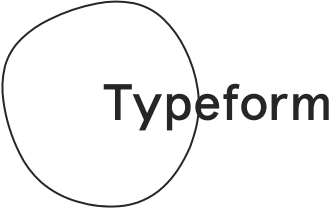
JavaScript Standard Style
Sponsored by 
English • Español (Latinoamérica) • Français • Bahasa Indonesia • Italiano (Italian) • 日本語 (Japanese) • 한국어 (Korean) • Português (Brasil) • 简体中文 (Simplified Chinese) • 繁體中文 (Taiwanese Mandarin)
JavaScript style guide, linter, and formatter
This module saves you (and others!) time in three ways:
- No configuration. The easiest way to enforce code quality in your project. No decisions to make. No
.eslintrcfiles to manage. It just works. - Automatically format code. Just run
standard --fixand say goodbye to messy or inconsistent code. - Catch style issues & programmer errors early. Save precious code review time by eliminating back-and-forth between reviewer & contributor.
Give it a try by running npx standard --fix right now!
Table of Contents
- Quick start
- FAQ
- Why should I use JavaScript Standard Style?
- Who uses JavaScript Standard Style?
- Are there text editor plugins?
- Is there a readme badge?
- I disagree with rule X, can you change it?
- But this isn't a real web standard!
- Is there an automatic formatter?
- How do I ignore files?
- How do I disable a rule?
- I use a library that pollutes the global namespace. How do I prevent "variable is not defined" errors?
- How do I use experimental JavaScript (ES Next) features?
- Can I use a JavaScript language variant, like Flow or TypeScript?
- What about Mocha, Jest, Jasmine, QUnit, etc?
- What about Web Workers and Service Workers?
- What is the difference between warnings and errors?
- Can I check code inside of Markdown or HTML files?
- Is there a Git
pre-commithook? - How do I make the output all colorful and pretty?
- Is there a Node.js API?
- How do I contribute to StandardJS?
Install
The easiest way to use JavaScript Standard Style is to install it globally as a Node command line program. Run the following command in Terminal:
$ npm install standard --global
Or, you can install standard locally, for use in a single project:
$ npm install standard --save-dev
Note: To run the preceding commands, Node.js and npm must be installed.
Usage
After you've installed standard, you should be able to use the standard program. The simplest use case would be checking the style of all JavaScript files in the current working directory:
$ standard
Error: Use JavaScript Standard Style
lib/torrent.js:950:11: Expected '===' and instead saw '=='.
If you've installed standard locally, run with npx instead:
$ npx standard
You can optionally pass in a directory (or directories) using the glob pattern. Be sure to quote paths containing glob patterns so that they are expanded by standard instead of your shell:
$ standard "src/util/**/*.js" "test/**/*.js"
Note: by default standard will look for all files matching the patterns: **/*.js, **/*.jsx.
What you might do if you're clever
-
Add it to
package.json{ "name": "my-cool-package", "devDependencies": { "standard": "*" }, "scripts": { "test": "standard && node my-tests.js" } } -
Style is checked automatically when you run
npm test$ npm test Error: Use JavaScript Standard Style lib/torrent.js:950:11: Expected '===' and instead saw '=='.
-
Never give style feedback on a pull request again!
Why should I use JavaScript Standard Style?
The beauty of JavaScript Standard Style is that it's simple. No one wants to maintain multiple hundred-line style configuration files for every module/project they work on. Enough of this madness!
This module saves you (and others!) time in three ways:
- No configuration. The easiest way to enforce consistent style in your project. Just drop it in.
- Automatically format code. Just run
standard --fixand say goodbye to messy or inconsistent code. - Catch style issues & programmer errors early. Save precious code review time by eliminating back-and-forth between reviewer & contributor.
Adopting standard style means ranking the importance of code clarity and community conventions higher than personal style. This might not make sense for 100% of projects and development cultures, however open source can be a hostile place for newbies. Setting up clear, automated contributor expectations makes a project healthier.
For more info, see the conference talk "Write Perfect Code with Standard and ESLint". In this talk, you'll learn about linting, when to use standard versus eslint, and how prettier compares to standard.
Who uses JavaScript Standard Style?
 |
 |
 |
 |
|---|
 |
 |
 |
 |
|---|
 |
 |
 |
 |
|---|
 |
 |
 |
 |
|---|
 |
 |
 |
 |
|---|
 |
 |
 |
 |
|---|
 |
 |
 |
 |
|---|
 |
 |
 |
 |
|---|
 |
 |
 |
 |
|---|
 |
 |
 |
 |
|---|
 |
 |
 |
 |
|---|
 |
 |
 |
 |
|---|
 |
 |
Your logo here | Your logo here |
|---|
In addition to companies, many community members use standard on packages that are too numerous to list here.
standard is also the top-starred linter in GitHub's Clean Code Linter showcase.
Are there text editor plugins?
First, install standard. Then, install the appropriate plugin for your editor:
Sublime Text
Using Package Control, install SublimeLinter and SublimeLinter-contrib-standard.
For automatic formatting on save, install StandardFormat.
Atom
Install linter-js-standard.
Alternatively, you can install linter-js-standard-engine. Instead of bundling a version of standard it will automatically use the version installed in your current project. It will also work out of the box with other linters based on standard-engine.
For automatic formatting, install standard-formatter. For snippets, install standardjs-snippets.
Visual Studio Code
Install vscode-standard. (Includes support for automatic formatting.)
For JS snippets, install: vscode-standardjs-snippets. For React snippets, install vscode-react-standard.
Vim
Install ale. And add these lines to your .vimrc file.
let g:ale_linters = {
\ 'javascript': ['standard'],
\}
let g:ale_fixers = {'javascript': ['standard']}
This sets standard as your only linter and fixer for javascript files and so prevents conflicts with eslint. For linting and automatic fixing on save, add these lines to .vimrc:
let g:ale_lint_on_save = 1
let g:ale_fix_on_save = 1
Alternative plugins to consider include neomake and syntastic, both of which have built-in support for standard (though configuration may be necessary).
Emacs
Install Flycheck and check out the manual to learn how to enable it in your projects.
Brackets
Search the extension registry for "Standard Code Style" and click "Install".
WebStorm (PhpStorm, IntelliJ, RubyMine, JetBrains, etc.)
WebStorm recently announced native support for standard directly in the IDE.
If you still prefer to configure standard manually, follow this guide. This applies to all JetBrains products, including PhpStorm, IntelliJ, RubyMine, etc.
Is there a readme badge?
Yes! If you use standard in your project, you can include one of these badges in your readme to let people know that your code is using the standard style.
[](https://github.com/standard/standard)
[](https://standardjs.com)
I disagree with rule X, can you change it?
No. The whole point of standard is to save you time by avoiding bikeshedding about code style. There are lots of debates online about tabs vs. spaces, etc. that will never be resolved. These debates just distract from getting stuff done. At the end of the day you have to 'just pick something', and that's the whole philosophy of standard -- its a bunch of sensible 'just pick something' opinions. Hopefully, users see the value in that over defending their own opinions.
There are a couple of similar packages for anyone who does not want to completely accept standard:
- semistandard - standard, with semicolons
- standardx - standard, with custom tweaks
If you really want to configure hundreds of ESLint rules individually, you can always use eslint directly with eslint-config-standard to layer your changes on top. standard-eject can help you migrate from standard to eslint and eslint-config-standard.
Pro tip: Just use standard and move on. There are actual real problems that you could spend your time solving! :P
But this isn't a real web standard!
Of course it's not! The style laid out here is not affiliated with any official web standards groups, which is why this repo is called standard/standard and not ECMA/standard.
The word "standard" has more meanings than just "web standard" :-) For example:
- This module helps hold our code to a high standard of quality.
- This module ensures that new contributors follow some basic style standards.
Is there an automatic formatter?
Yes! You can use standard --fix to fix most issues automatically.
standard --fix is built into standard for maximum convenience. Most problems are fixable, but some errors (like forgetting to handle errors) must be fixed manually.
To save you time, standard outputs the message "Run standard --fix to automatically fix some problems" when it detects problems that can be fixed automatically.
How do I ignore files?
Certain paths (node_modules/, coverage/, vendor/, *.min.js, and files/folders that begin with . like .git/) are automatically ignored.
Paths in a project's root .gitignore file are also automatically ignored.
Sometimes you need to ignore additional folders or specific minified files. To do that, add a standard.ignore property to package.json:
"standard": {
"ignore": [
"**/out/",
"/lib/select2/",
"/lib/ckeditor/",
"tmp.js"
]
}
How do I disable a rule?
In rare cases, you'll need to break a rule and hide the error generated by standard.
JavaScript Standard Style uses ESLint under-the-hood and you can hide errors as you normally would if you used ESLint directly.
To get verbose output (so you can find the particular rule name to ignore), run:
$ standard --verbose
Error: Use JavaScript Standard Style
routes/error.js:20:36: 'file' was used before it was defined. (no-use-before-define)
Disable all rules on a specific line:
file = 'I know what I am doing' // eslint-disable-line
Or, disable only the "no-use-before-define" rule:
file = 'I know what I am doing' // eslint-disable-line no-use-before-define
Or, disable the "no-use-before-define" rule for multiple lines:
/* eslint-disable no-use-before-define */
console.log('offending code goes here...')
console.log('offending code goes here...')
console.log('offending code goes here...')
/* eslint-enable no-use-before-define */
I use a library that pollutes the global namespace. How do I prevent "variable is not defined" errors?
Some packages (e.g. mocha) put their functions (e.g. describe, it) on the global object (poor form!). Since these functions are not defined or require'd anywhere in your code, standard will warn that you're using a variable that is not defined (usually, this rule is really useful for catching typos!). But we want to disable it for these global variables.
To let standard (as well as humans reading your code) know that certain variables are global in your code, add this to the top of your file:
/* global myVar1, myVar2 */
If you have hundreds of files, it may be desirable to avoid adding comments to every file. In this case, run:
$ standard --global myVar1 --global myVar2
Or, add this to package.json:
{
"standard": {
"globals": [ "myVar1", "myVar2" ]
}
}
Note: global and globals are equivalent.
How do I use experimental JavaScript (ES Next) features?
standard supports the latest ECMAScript features, ES8 (ES2017), including language feature proposals that are in "Stage 4" of the proposal process.
To support experimental language features, standard supports specifying a custom JavaScript parser. Before using a custom parser, consider whether the added complexity is worth it.
To use a custom parser, first install it from npm:
npm install @babel/eslint-parser --save-dev
Then run:
$ standard --parser @babel/eslint-parser
Or, add this to package.json:
{
"standard": {
"parser": "@babel/eslint-parser"
}
}
Can I use a JavaScript language variant, like Flow or TypeScript?
standard supports the latest ECMAScript features. However, Flow and TypeScript add new syntax to the language, so they are not supported out-of-the-box.
For TypeScript, an official variant ts-standard is supported and maintained that provides a very similar experience to standard.
For other JavaScript language variants, standard supports specifying a custom JavaScript parser as well as an ESLint plugin to handle the changed syntax. Before using a JavaScript language variant, consider whether the added complexity is worth it.
TypeScript
ts-standard is the officially supported variant for TypeScript. ts-standard supports all the same rules and options as standard and includes additional TypeScript specific rules. ts-standard will even lint regular javascript files by setting the configuration in tsconfig.json.
npm install ts-standard --save-dev
Then run (where tsconfig.json is located in the working directory):
$ ts-standard
Or, add this to package.json:
{
"ts-standard": {
"project": "./tsconfig.json"
}
}
Note: To include additional files in linting such as test files, create a tsconfig.eslint.json file to use instead.
If you really want to configure hundreds of ESLint rules individually, you can always use eslint directly with eslint-config-standard-with-typescript to layer your changes on top.
Flow
To use Flow, you need to run standard with @babel/eslint-parser as the parser and eslint-plugin-flowtype as a plugin.
npm install @babel/eslint-parser eslint-plugin-flowtype --save-dev
Then run:
$ standard --parser @babel/eslint-parser --plugin flowtype
Or, add this to package.json:
{
"standard": {
"parser": "@babel/eslint-parser",
"plugins": [ "flowtype" ]
}
}
Note: plugin and plugins are equivalent.
What about Mocha, Jest, Jasmine, QUnit, etc?
To support mocha in test files, add this to the top of the test files:
/* eslint-env mocha */
Or, run:
$ standard --env mocha
Where mocha can be one of jest, jasmine, qunit, phantomjs, and so on. To see a full list, check ESLint's specifying environments documentation. For a list of what globals are available for these environments, check the globals npm module.
Note: env and envs are equivalent.
What about Web Workers and Service Workers?
Add this to the top of web worker files:
/* eslint-env worker */
This lets standard (as well as humans reading the code) know that self is a global in web worker code.
For Service workers, add this instead:
/* eslint-env serviceworker */
What is the difference between warnings and errors?
standard treats all rule violations as errors, which means that standard will exit with a non-zero (error) exit code.
However, we may occasionally release a new major version of standard which changes a rule that affects the majority of standard users (for example, transitioning from var to let/const). We do this only when we think the advantage is worth the cost and only when the rule is auto-fixable.
In these situations, we have a "transition period" where the rule change is only a "warning". Warnings don't cause standard to return a non-zero (error) exit code. However, a warning message will still print to the console. During the transition period, using standard --fix will update your code so that it's ready for the next major version.
The slow and careful approach is what we strive for with standard. We're generally extremely conservative in enforcing the usage of new language features. We want using standard to be light and fun and so we're careful about making changes that may get in your way. As always, you can disable a rule at any time, if necessary.
Can I check code inside of Markdown or HTML files?
To check code inside Markdown files, use standard-markdown.
Alternatively, there are ESLint plugins that can check code inside Markdown, HTML, and many other types of language files:
To check code inside Markdown files, use an ESLint plugin:
$ npm install eslint-plugin-markdown
Then, to check JS that appears inside code blocks, run:
$ standard --plugin markdown '**/*.md'
To check code inside HTML files, use an ESLint plugin:
$ npm install eslint-plugin-html
Then, to check JS that appears inside <script> tags, run:
$ standard --plugin html '**/*.html'
Is there a Git pre-commit hook?
Yes! Hooks are great for ensuring that unstyled code never even makes it into your repo. Never give style feedback on a pull request again!
You even have a choice...
Install your own hook
#!/bin/bash
# Ensure all JavaScript files staged for commit pass standard code style
function xargs-r() {
# Portable version of "xargs -r". The -r flag is a GNU extension that
# prevents xargs from running if there are no input files.
if IFS= read -r -d $'\n' path; then
echo "$path" | cat - | xargs "$@"
fi
}
git diff --name-only --cached --relative | grep '\.jsx\?$' | sed 's/[^[:alnum:]]/\\&/g' | xargs-r -E '' -t standard
if [[ $? -ne 0 ]]; then
echo 'JavaScript Standard Style errors were detected. Aborting commit.'
exit 1
fi
Use a pre-commit hook
The pre-commit library allows hooks to be declared within a .pre-commit-config.yaml configuration file in the repo, and therefore more easily maintained across a team.
Users of pre-commit can simply add standard to their .pre-commit-config.yaml file, which will automatically fix .js, .jsx, .ts, .tsx, .mjs and .cjs files:
- repo: https://github.com/standard/standard
rev: master
hooks:
- id: standard
Alternatively, for more advanced styling configurations, use standard within the eslint hook:
- repo: https://github.com/pre-commit/mirrors-eslint
rev: master
hooks:
- id: eslint
files: \.[jt]sx?$ # *.js, *.jsx, *.ts and *.tsx
types: [file]
additional_dependencies:
- eslint@latest
- eslint-config-standard@latest
# and whatever other plugins...
How do I make the output all colorful and pretty?
The built-in output is simple and straightforward, but if you like shiny things, install snazzy:
$ npm install snazzy
And run:
$ standard --verbose | snazzy
There's also standard-tap, standard-json, standard-reporter, and standard-summary.
Is there a Node.js API?
Yes!
standard.lintText(text, [opts], callback)
Lint the provided source text. An opts object may be provided:
{
cwd: '', // current working directory (default: process.cwd())
filename: '', // path of the file containing the text being linted (optional, though some eslint plugins require it)
fix: false, // automatically fix problems
globals: [], // custom global variables to declare
plugins: [], // custom eslint plugins
envs: [], // custom eslint environment
parser: '' // custom js parser (e.g. @babel/eslint-parser)
}
Additional options may be loaded from a package.json if it's found for the current working directory.
The callback will be called with an Error and results object.
The results object will contain the following properties:
var results = {
results: [
{
filePath: '',
messages: [
{ ruleId: '', message: '', line: 0, column: 0 }
],
errorCount: 0,
warningCount: 0,
output: '' // fixed source code (only present with {fix: true} option)
}
],
errorCount: 0,
warningCount: 0
}
results = standard.lintTextSync(text, [opts])
Synchronous version of standard.lintText(). If an error occurs, an exception is thrown. Otherwise, a results object is returned.
standard.lintFiles(files, [opts], callback)
Lint the provided files globs. An opts object may be provided:
var opts = {
ignore: [], // file globs to ignore (has sane defaults)
cwd: '', // current working directory (default: process.cwd())
fix: false, // automatically fix problems
globals: [], // global variables to declare
plugins: [], // eslint plugins
envs: [], // eslint environment
parser: '' // js parser (e.g. @babel/eslint-parser)
}
The callback will be called with an Error and results object (same as above).
How do I contribute to StandardJS?
Contributions are welcome! Check out the issues or the PRs, and make your own if you want something that you don't see there.
Want to chat? Join contributors on IRC in the #standard channel on freenode.
Here are some important packages in the standard ecosystem:
- standard - this repo
- standard-engine - cli engine for arbitrary eslint rules
- eslint-config-standard - eslint rules for standard
- eslint-config-standard-jsx - eslint rules for standard (JSX)
- eslint - the linter that powers standard
- snazzy - pretty terminal output for standard
- standard-www - code for https://standardjs.com
- semistandard - standard, with semicolons (if you must)
- standardx - standard, with custom tweaks
There are also many editor plugins, a list of npm packages that use standard, and an awesome list of packages in the standard ecosystem.
Security Policies and Procedures
The standard team and community take all security bugs in standard seriously. Please see our security policies and procedures document to learn how to report issues.
License
MIT. Copyright (c) Feross Aboukhadijeh.






